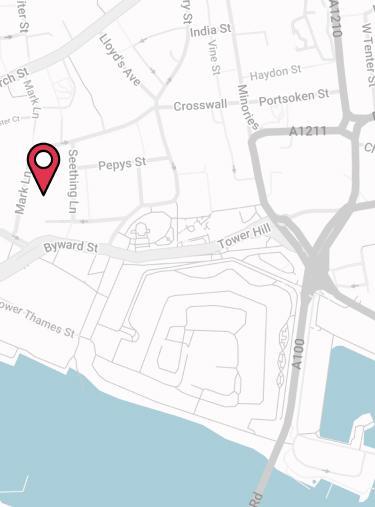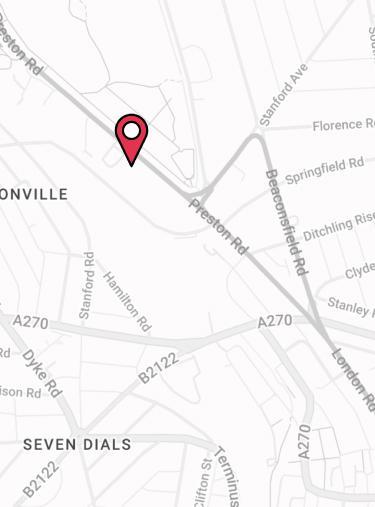Barristers Income Protection is a type of Income Protection Insurance policy designed to provide barristers with a replacement income during a time of incapacity.
Should an accident or ill health prevent you from continuing your normal occupation, you will be able to receive a monthly payment from your insurance provider in order to help you maintain your monthly outgoings at a time when your income has ceased.
Given that almost 80% of barristers (according to the Bar Standards Board) are self-employed and work through a set of chambers, there may not be any sick pay to back them up should they fall ill.
According to consumer group Which?, Income Protection is the one policy every working adult should consider.
Do Barristers Need Income Protection Insurance?
Mental health issues are some of the most pressing issues for barristers and members of the court. 1 in 4 people in the England will experience a mental health problem per year, and mental illness remains a common Income Protection claim.
Other common claims are musculoskeletal disorders and cancer. Although health problems such as cancer are serious, musculoskeletal issues can be no less debilitating and are particularly common among desk workers.
If you’re forced to take leave from your work to recover, without the right financial resources you may not get better in time to return to work before you run out of income. State benefits are typically modest and insufficient to maintain anything like your normal lifestyle, which is why many barristers choose to make arrangements of their own and cover themselves with Income Protection Insurance.
How Does Income Protection Insurance for Barristers Work?
Should you be unable to continue your normal occupation due to accident or sickness, you would make a claim against your Barristers Income Protection policy.
This process involves contacting the claims team of your insurer and providing them with a completed claims form – which will either be available by post or online – and sufficient medical evidence of your condition.
Once your claim has been accepted, you will need to wait out your deferred period, which is the length of time during which you will need to be out of work in order to begin receiving your benefits.
After this time, your policy will start to provide you with a regular monthly income to a specified level. This normally stands at 50% to 70% of your gross earnings.
Short Or Long Term Cover?
Short-term Barristers Income Protection Insurance will pay out for a maximum of one or two years per claim. Long-term policies, on the other hand, can pay out right up until your retirement.
Barristers Must Consider Continuing Income
When setting your deferred period, it’s vital to consider any continuing income you would have following an incapacity.
Given that we’ve set up a lot of insurance for barristers, we know how common it to still be receiving monies from work undertaken prior to incapacity – with invoices trickling in for up to six months
Insurers will assess your continuing income at claim stage, and typically deduct this income from the benefit they pay out – so it’s important to set the deferred period at an appropriate length.
Income Protection Options for Barristers
When setting up your Income Protection policy as a barrister, you’ll have a number of policy options to choose from.
Length of Cover
While it may be tempting to get the maximum level of cover to ensure enough income, remember that the bigger the payout, the more expensive your premiums will be.
To avoid over or under insuring yourself, you should take a close look at your average monthly expenditure. You can use this amount to decide how much of a monthly benefit you would need, leaving a little bit of wiggle room in case of emergencies.
Length of Claims Period
The best Income Protection policies will pay out long-term, so after the end of your deferred period if you can’t ever work again it will keep paying up until your retirement. If you get better, the policy will continue to pay out until the point you’re well enough to return to work.
Short-term policies are a low-cost option. These will pay out for a maximum of between one and two years per claim and then stop – even if you can’t go back to work after that period.
It’s a difficult decision, weighing up the benefits of lower premiums against more comprehensive cover. Our specialists can review your situation and help you find the most suitable option.
Deferred Period
When setting your deferred period, take into consideration that you may still have invoices coming in even if you aren’t working, and insurance providers will not pay out until you have completely stopped receiving income. The best deferred period would be one that ends at around the same time as your income stops, which we recommend would be around six months.
The longer you set your deferred period, the lower the cost of your policy will typically be.
Types of Premium
There a three common types of premiums that you will find on Income Protection policies for Barristers. The type that you choose, however, will depend on your circumstances.
Guaranteed
These premiums will stay at the same price for the entirety of your policy. While they might be the more expensive option when you take out your policy, they will not change no matter how long you have your policy.
Age Banded
These policies are tied to your age and will increase by a certain amount each year. Normally, these premiums increase at a fixed rate, usually in relation to a ‘premium table’ which shows you exactly how your premiums will change each year. These premiums can get more expensive the longer you have your policy, but these increases are predictable over time.
Reviewable
These premiums can change drastically throughout the term of your policy as well as quite suddenly. This type of premium involves your provider reviewing your policy each year and adjusting your premiums in accordance with any changes to you, your policy, or the the insurance company’s situation. This means that if the company see poor investment returns or if there are changes in tax, your premiums might one year jump in price unexpectedly. We normally recommend that people avoid policies with reviewable premiums as the cost can be unpredictable.
Indexation
Particularly with the longer term policies, linking your Income Protection benefits to inflation may be worth considering to ensure they hold their value over time. However, you should note that even with guaranteed premiums, your premiums will increase with inflation as well to take into account your increasing benefit.
You should also look out for insurers who may add an additional increase to your premiums for every time that your cover is increased. Some insurance providers will increase your premiums by 1.5 or 2 times the percentage increase of your cover, which means that you may find the cost of your policy going up by more than inflation over time.
Getting Own Occupation Cover for Barristers
Insurers use different definitions of incapacity to determine whether or not you are entitled to your Income Protection benefits. These are something to be aware of when buying Income Protection as a barrister.
Own Occupation
This is the best definition available and should be the one that you look out for when applying for your policy. Having this definition of incapacity applied to your policy means that as long as you are unable to perform your duties in your specific occupation, you can be defined as ‘incapacitated’ and are entitled to make a claim.
This can be highly beneficial if, for example, you injure your throat and are unable to speak. In another occupation, this may be a minor injury and not necessary to your role, which means that the insurer will not pay out as you could go and do a job you’re suited for elsewhere not using your voice.
But, because the ability to speak is highly relevant to your occupation as a barrister, an Income Protection policy underwritten on an own occupation basis would pay out because you are unable to properly perform your occupational duties.
If you have a long-term policy, you can also continue claiming on your policy until you are fully capable of returning to your original occupation.
Suited Occupation
This definition doesn’t provide as much cover as ‘own occupation’. With this definition, you would be able to claim and continue claiming as long as you are incapable of performing typical duties in your occupation as well as in occupations that you are suitably qualified for.
This can cause issues as it may be the case that your insurer will refuse to pay out if they believe that you are capable of returning to work, even if you only capable of taking on a lower paying job role rather than returning to your pre-incapacity occupation as a barrister.
Any Occupation/Activities of Daily Living
These definitions of incapacity are normally used to cover professionals in ‘high risk’ occupations, but you may still need to keep an eye out for it when applying for your policy. The use of this definition means that you must be incapable of doing the duties of any occupation before making a claim. Naturally, this is highly subjective.
Your insurer will give you a list of typical daily activities such as walking, climbing stairs, lifting a certain weight, washing, dressing and feeding yourself etc. In order to have your claim approved, you will have to be injured or ill to the point that you are unable to perform at least 3 of these tasks.
Compare Top UK Income Protection Insurers for Barristers
Why is Income Protection for Barristers important?
As a barrister, you most likely work through a set of chambers and are therefore effectively self-employed. As such, you’re extremely unlikely to get any sick pay if you can’t work for medical reasons.
It’s here Income Protection can step in to secure you an income if you’re off sick, paying out up to 70% of your gross earnings each month. Long-term protection will pay you for as long as you need, right up until retirement if necessary in case you can never work again.
How is Barristers Income Protection taxed?
You pay with an Income Protection policy out of net pay from your personal bank account, which represents money that has already had tax and National Insurance deducted from it.
As such, because you’ve already effectively paid tax on the money you’re using the cover the premiums, should you need to make a claim you receive the payout from an Income Protection policy tax-free.
What's the maximum Income Protection Cover I can get?
The maximum amount of Income Protection you can receive depends on your insurer. You can typically insure between 50% and 70% of your gross earnings with Income Protection, although certain insurers place a cap on the monetary value you can claim each month or year.
It’s unlikely that a barrister will be best-placed with most friendly societies, for instance, because barristers tend to be high earners and friendly societies generally have much lower caps on the monetary value of Income Protection you can claim each year.
Get Specialist Income Protection Advice
In some situations, your Income Protection policy might be all that stands between you and serious financial difficulties.
That is why it is imperative to ensure that you have a policy in place that you understand and which you are confident will provide you with the cover you need. Our specialists will take the time to understand your situation and find the most suitable policy for your needs.
It doesn’t cost you a penny to set up your policy through us, so call 02084327333, email help@drewberry.co.uk, or compare quotes online to find out your options.
Why Speak to Us?
When it comes to protecting yourself and your finances, you deserve first-class service. Here’s why you should talk to us:
- There’s no fee for our service
- We’re an award-winning independent insurance broker, working with the leading UK insurers
- You’ll speak to a dedicated specialist from start to finish
- 4100 and growing independent client reviews rating us at 4.92 / 5
- Claims support when you need it most
- We’re authorised and regulated by the Financial Conduct Authority. Find us on the financial services register.



















